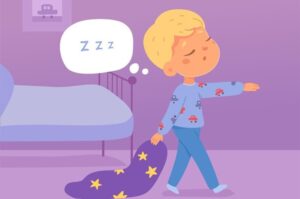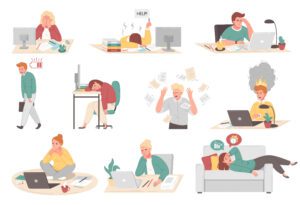Stress vs. Anxiety vs. Burnout: How to Recognize the Difference
This article has been researched and written by Nayla Daou. AI has not been used in producing this article.
In today’s fast-paced world, understanding the differences between stress, anxiety, and burnout is crucial for maintaining mental health and well-being. These conditions often overlap, but they have distinct characteristics that require different approaches for management and recovery. By identifying these differences, you can take appropriate steps to address each condition and improve your overall quality of life.
What is Stress?
Stress is the body’s natural reaction to perceived threats or demands. Stress can be triggered by specific challenges, like meeting a work deadline or studying for an exam. When in a state of stress, the human body releases hormones like adrenaline and cortisol, triggering the “fight or flight” response. This increases energy and focus, helping you tackle immediate obstacles. However, chronic stress can have serious health consequences, such as high blood pressure, heart disease, and a weakened immune system. Managing stress effectively is crucial for maintaining overall health and well-being.
Symptoms of Stress:
- Physical: Headaches, muscle tension, stomach problems
- Emotional: Irritability, anxiety, depression
- Behavioral: Changes in eating habits, social withdrawal, increased use of substances like caffeine or alcohol
- Cognitive: Difficulty concentrating, racing thoughts, feeling overwhelmed
Managing Stress:
- Regular Breaks: Take short breaks during the day to relax and recharge.
- Exercise: Engage in physical activities to release built-up tension.
- Balanced Diet: Eat a variety of healthy foods to maintain energy and resilience.
- Boundaries: Set limits to avoid taking on too much.
- Mindfulness: Practice meditation and mindfulness to calm the mind.
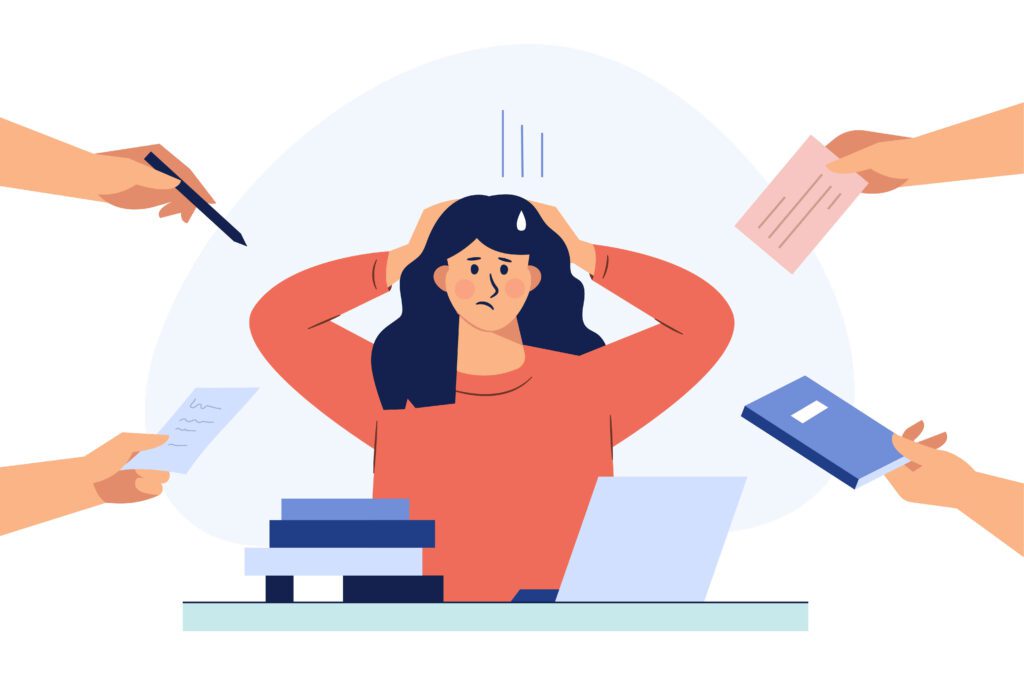
What is Anxiety?
Anxiety is a persistent state of worry or fear that can occur without a specific cause. Unlike stress, which is a response to an external trigger, anxiety can be a chronic condition that affects daily life. When left unmanaged, chronic anxiety can lead to excessive worrying, restlessness, and difficulty concentrating. Additionally, anxiety may cause physical symptoms like increased heart rate, sweating, and trembling. Over time, unmanaged anxiety can significantly impact your overall quality of life, making it important to seek effective coping strategies and professional support.
Symptoms of Anxiety:
- Constant worry or fear
- Restlessness or feeling on edge
- Difficulty concentrating
- Sleep disturbances
- Physical symptoms like increased heart rate, sweating, or trembling
Managing Anxiety:
- Therapy: Cognitive-behavioral therapy (CBT) can help reframe negative thought patterns. Other therapies used by our therapists include Eye Movement Desensitization and Reprocessing (EMDR), psychodynamic therapy, and others, which aim to heal the maladaptive thoughts underlying anxiety.
- Medication: In some cases, medication may be prescribed to manage symptoms.
- Relaxation Techniques: Deep breathing, meditation, and yoga can reduce anxiety.
- Healthy Lifestyle: Regular exercise, sufficient sleep, and a balanced diet can improve overall mental health.
- Support Network: Building a strong support system of friends, family, or support groups can provide comfort and advice.
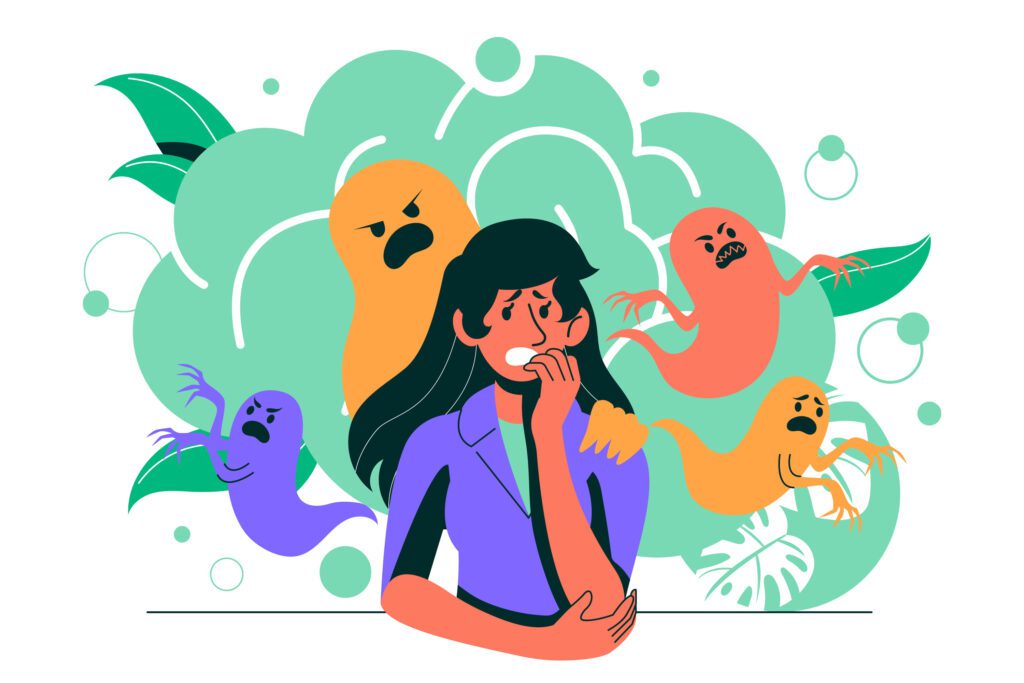
What is Burnout?
Burnout is a state of emotional, physical, and mental exhaustion caused by prolonged and excessive stress. It often occurs when you feel overwhelmed, emotionally drained, and unable to meet constant demands. Burnout can affect all areas of life, including work, relationships counselling, and your overall health. When you become “burnt out,” you may feel detached and cynical about your responsibilities, leading to decreased productivity and motivation. Over time, burnout can severely impact physical health, increasing the risk of conditions like heart disease, depression desease, and chronic fatigue. Recognizing and addressing burnout is essential for recovery and maintaining well-being.
Symptoms of Burnout:
- Emotional: Feeling detached, loss of motivation, sense of failure
- Physical: Chronic fatigue, frequent illnesses
- Cognitive: Reduced performance, difficulty concentrating, memory issues
- Behavioral: Withdrawal from responsibilities, procrastination, using food, drugs, or alcohol to cope
Managing Burnout:
- Professional Help: Seek guidance from a mental health professional.
- Work-Life Balance: Make time for activities outside of work that you enjoy.
- Self-Care: Prioritize self-care activities, such as hobbies, relaxation, and socializing.
- Realistic Goals: Set achievable goals and break tasks into smaller steps.
- Mindfulness and Relaxation: Incorporate practices like meditation, yoga, or tai chi to reduce stress.
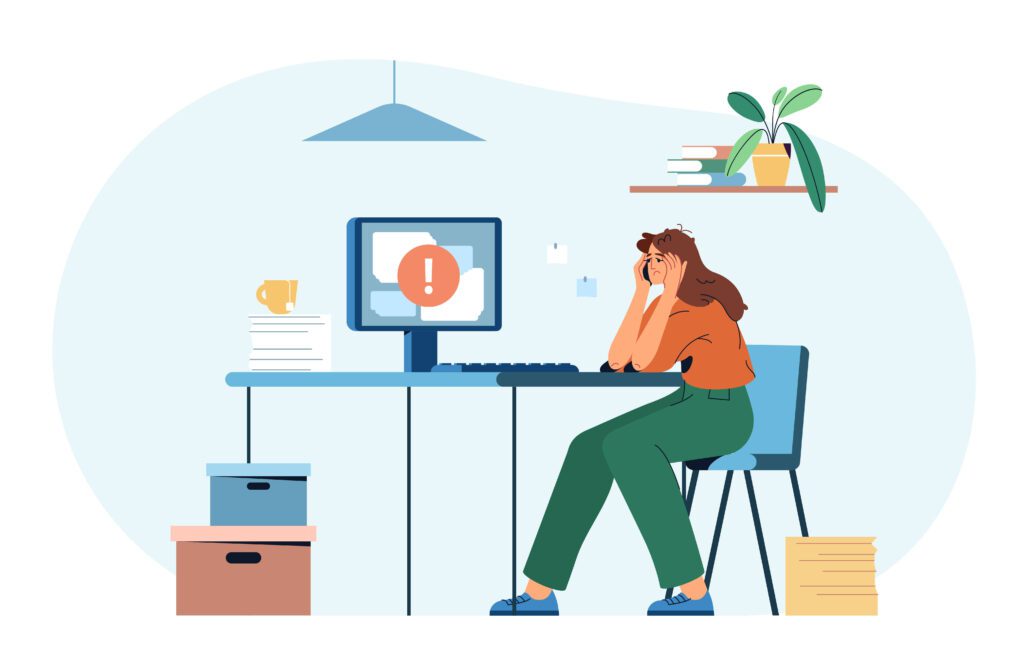
Spotting the Signs: Stress, Anxiety, and Burnout
Recognizing the differences between stress, anxiety, and burnout is crucial for maintaining mental health. Stress is a short-term response to external demands, motivating but potentially harmful if prolonged. Anxiety, in contrast, is a persistent state of worry without a specific cause, disrupting daily activities and requiring unique management techniques. Burnout stems from prolonged stress, leading to emotional and physical exhaustion, often needing significant lifestyle changes and professional help for recovery.
Understanding these differences is essential for seeking the right help and implementing effective coping strategies. By addressing each condition appropriately, you can improve your overall well-being.
If you’re struggling with stress, anxiety, or burnout, ClearMinds Counseling can help. Our experienced therapists provide personalized support to guide you through these challenges. Take the first step toward better mental health by scheduling an appointment with ClearMinds Counseling today.
How Psychoeducational Assessments Help Shape Better Learning Plans in School
No two children are the same. Every child brings a unique mix of strengths, challenges, and ways of …
Can Relationship Counseling Work for Toxic Relationships?
Relationships can be complicated, emotional, and at times, painful. While every couple experiences ups and downs, some relationships …
10 Signs You May Have Anxiety
Anxiety is a normal and natural human response to stress, danger, or uncertainty. However, when anxiety becomes excessive, it can …
Child Sleepwalking and Talking: What You Need to Know
Childhood is a time of rapid development, filled with new experiences—and sometimes, surprising nighttime behaviors.
Questions a Child Psychologist Might Ask
When preparing for your child’s first appointment with a psychologist, it’s natural to feel curious—or even a little anxious—about what …
55 Love Questions for Couples to Deepen Your Relationship
In any relationship, communication is key. Whether you’re just starting out or have been together for years, asking meaningful
Stress vs. Anxiety vs. Burnout: How to Recognize the Difference
In today’s fast-paced world, understanding the differences between stress, anxiety, and burnout is crucial for …
Relocation Depression: Definition and Ways to Cope
Relocation depression, also known as moving depression, is a form of situational depression that arises from the stress …
How to Help Your Child with Anxiety Through Divorce
Divorce is a significant change that affects every member of a family. For children, the uncertainty and adjustments …
Depression vs Sadness: Understanding the Difference
While often used interchangeably, the terms “sadness” and “depression” represent distinct emotional states, each with …




